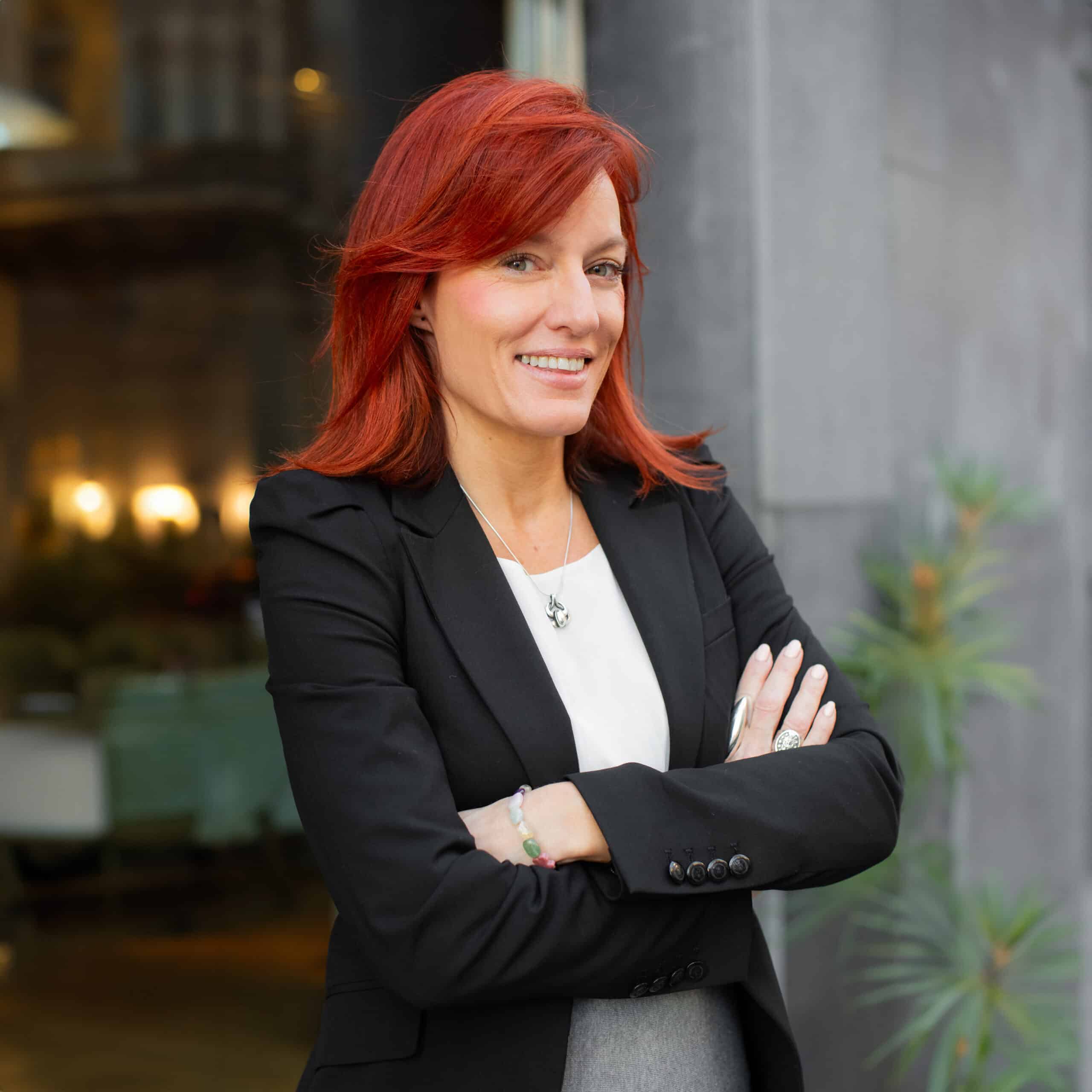The Gender Gap in Global Business Leadership
Women leaders have made groundbreaking strides in global business, leading multinational companies, launching billion-dollar startups, and shaping economic policies. However, the fact remains that only 11.6% of women are at the helm of Fortune 500 companies, that is, 58 women to be exact.
McKinsey predicts it will take around 50 years to reach gender parity, This recent ‘milestone’ illustrates that the gender gap in leadership remains a challenge.
Despite progress, women remain underrepresented in executive leadership. Key statistics from the World Economic Forum (2023) reveal:
- Women hold only 32% of senior leadership roles worldwide.
- Only 2% of venture capital funding goes to female-led startups.
- Women-led businesses are growing at a rate 1.5 times faster than those led by men.
However, organizations and universities are investing in scholarships, leadership programs, and mentorship opportunities to support more women in business leadership. For aspiring female master’s students who dream of becoming business leaders, learning from successful women in global business can offer inspiration, guidance, and practical steps to follow.
Here we celebrate 10 trailblazing women in business, their academic journeys, career paths, and how you too can position yourself for global business leadership.
Top 10 Most Impactful Women in Business And Their Academic Backgrounds
1. Indra Nooyi
Former CEO, PepsiCo – Yale University, India Institute of Management
As PepsiCo’s CEO from 2006 to 2018, Indra Nooyi transformed the company by focusing on healthier products and sustainability initiatives, growing revenue from $35 billion to $63 billion. Under her leadership, PepsiCo acquired Tropicana and merged with Quaker Oats, diversifying beyond carbonated beverages.
Nooyi holds an MBA from Indian Institute of Management, Calcutta (1976) and a master’s in Public & Private Management from Yale School of Management (1978). Her academic foundation combined with her strategic vision earned her consistent ranking among Forbes’ “World’s 100 Most Powerful Women.”
2. Mary Barra
CEO, General Motors – Stanford University, Kettering University
As the first female CEO of a major global automaker (appointed in 2014), Mary Barra has led General Motors through significant transformation, including a $35 billion investment in electric and autonomous vehicles. Her “Zero Crashes, Zero Emissions, Zero Congestion” vision has repositioned GM for the future of mobility.
Barra studied for an MBA at Stanford Graduate School of Business (1990) on a GM fellowship. She also holds a bachelor’s in Electrical Engineering from Kettering University (formerly General Motors Institute), where she began her GM career as a co-op student in 1980.
3. Ursula Burns
Former CEO, Xerox – Columbia University, NYU Tandon School of Engineering
Ursula Burns made history as the first Black woman to lead a Fortune 500 company when she became CEO of Xerox in 2009. Starting as an engineering intern in 1980, Burns rose through the ranks and eventually led Xerox’s transition from a primarily copying and printing company to a diversified business services provider.
Burns earned her bachelor’s in Mechanical Engineering from NYU Tandon School of Engineering (formerly Polytechnic Institute of New York) in 1980. Subsequently, she completed a master’s in Mechanical Engineering from Columbia University in 1981.
4. Ginni Rometty
Former CEO, IBM – Northwestern University
Virginia “Ginni” Rometty served as the first female CEO of IBM from 2012 to 2020, where she led the company’s transformation into cloud computing, AI (including Watson), and data analytics. Under her leadership, IBM acquired Red Hat for $34 billion in 2019, the largest software acquisition in history at that time.
Rometty earned her bachelor’s in Computer Science & Electrical Engineering from Northwestern University in 1979, graduating with high honors. She joined IBM as a systems engineer in 1981 and rose through multiple leadership roles before becoming CEO.
5. Sheryl Sandberg
Former COO, Meta – Harvard University
As COO of Facebook (now Meta) from 2008 to 2022, Sheryl Sandberg is widely credited as the architect of Meta’s advertising business model that transformed the company from a popular website into a profitable tech giant. Beyond her corporate role, Sandberg founded LeanIn.org, a global community dedicated to helping women achieve their ambitions.
Sandberg graduated summa cum laude from Harvard College with a bachelor’s in Economics (1991) and earned an MBA with highest distinction from Harvard Business School (1995). Before Meta, she was Vice President of Global Online Sales and Operations at Google and served as Chief of Staff for the United States Treasury Department.
6. Mellody Hobson
Co-CEO, Ariel Investments – Princeton University
Mellody Hobson serves as co-CEO of Ariel Investments, the largest minority-owned investment firm in the United States. Beyond her work at Ariel, Hobson is the Chairwoman of Starbucks Corporation and previously served as Chairwoman of DreamWorks Animation. Her influence extends across multiple sectors of American business.
Hobson graduated from Princeton University in 1991 with a bachelor’s in International Relations and Public Policy. She joined Ariel Investments as an intern and rose to become president at age 31 before becoming co-CEO in 2019.
7. Safra Catz
CEO, Oracle – Wharton School, University of Pennsylvania
As CEO of Oracle since 2014 (initially as co-CEO with Mark Hurd), Safra Catz has been instrumental in Oracle’s aggressive acquisition strategy and expansion into cloud services. Consistently ranked among the highest-paid female executives globally, Catz has overseen more than 130 acquisitions worth tens of billions of dollars.
She holds a Juris Doctor from the University of Pennsylvania Law School (1986), not from Wharton as sometimes reported. She also earned a bachelor’s degree from the Wharton School of the University of Pennsylvania. Before Oracle, Catz worked in investment banking at Donaldson, Lufkin & Jenrette.
8. Whitney Wolfe Herd
Founder & CEO, Bumble – Southern Methodist University
Whitney Wolfe Herd made history in 2021 when she became the youngest woman to take a company public, at age 31. As founder and CEO of Bumble, she created a dating app that gives women more control by requiring them to make the first move. By 2023, Bumble had over 40 million users worldwide. Recently she announced her return as CEO after stepping down in January 2024.
Wolfe Herd graduated from Southern Methodist University in 2011 with a bachelor’s in International Studies. Before founding Bumble in 2014, she was a co-founder and VP of Marketing at Tinder.
9. Adena Friedman
CEO, Nasdaq – Vanderbilt University
Adena Friedman became the first woman to lead a global stock exchange when she was appointed CEO of Nasdaq in 2017. Under her leadership, Nasdaq has evolved from primarily an exchange operator to a technology and analytics company serving the financial services industry.
Friedman earned an MBA from Vanderbilt University’s Owen Graduate School of Management in 1993. She joined Nasdaq in 1993 as an intern and held numerous roles including CFO and COO before becoming CEO. Between 2011 and 2014, she served as CFO and Managing Director of The Carlyle Group.
10. Ngozi Okonjo-Iweala
Director-General, WTO – Harvard University, MIT
Dr. Ngozi Okonjo-Iweala made history in 2021 as the first woman and first African to lead the World Trade Organization (WTO). Before joining the WTO, she served two terms as Nigeria’s Finance Minister and spent 25 years at the World Bank, rising to the position of Managing Director.
An exemplary Ivy League scholar, Okonjo-Iweala holds a bachelor’s in Economics from Harvard University (1976, magna cum laude) and both a master’s (1978) and doctorate (1981) in Regional Economics and Development from the Massachusetts Institute of Technology (MIT). She has been awarded 15 honorary degrees and was recognized as one of the 100 most powerful women in the world by Forbes magazine for four years in a row, and by Time magazine as one of the 100 most influential people in the world.
What Specializations These Women Studied and Where
Most successful women in business earned master’s, MBAs, or advanced degrees from top universities. Some key areas of specialization within this group of accomplished women are:
- Business & Economics Degrees – Indra Nooyi, Sheryl Sandberg, Safra Catz
- Engineering & Technology – Mary Barra, Ursula Burns, Ginni Rometty
- Finance & Investment – Mellody Hobson, Adena Friedman
- Public Policy & International Relations – Ngozi Okonjo-Iweala, Whitney Wolfe Herd
Top Master’s Programs for Women in Business Leadership
Harvard Business School (USA)
Harvard offers several strong female leadership programs, including the MBA program with the Women’s Student Association. They also host a Women’s Leadership Program as part of their Executive Education. Furthermore, Harvard has a Gender Initiative research hub.
Stanford Graduate School of Business (USA)
With a focus on tech and innovation, Stanford GSB offers an executive program in Women’s Leadership as well as the Stanford Seed initiative supporting women entrepreneurs. Their MBA program and MSx Program (Master of Science in Management for experienced leaders) are geared towards leadership development.
INSEAD (France/Singapore)
Renowned for its focus on global business leadership, INSEAD has various master’s and MBA degrees in management. They offer shorter executive programs in Women’s leadership and an Executive MBA. They also have a Women in Business Club.
Wharton School, University of Pennsylvania (USA)
Wharton offers various master’s programs with a focus on finance and management. The Wharton Women’s Executive Leadership program
Wharton’s Women in Business student organization organizes various events and initiatives across 14 committees designed to support women in business leadership.
London Business School (UK)
If you are looking for a master’s focussed on international business and strategy,, London Business School offers a master’s in management, an MBA, and an Executive MBA for women seeking leadership training. They also offer a vast range of scholarships for women. The LBS Women in Business Club fosters a community of next-generation leaders in their personal and professional development.
Many business schools and universities like these institutions offer specific resources, networks, and initiatives focused on supporting women in business leadership. For the most up-to-date information on application requirements, scholarships, and program specifics, we recommend visiting their websites directly.
Scholarships, Networking & Leadership Organizations for Women
Women pursuing careers in leadership can find scholarships and fellowships that are often dedicated to the development of women in business.
- Forte Foundation offers MBA Fellowships, in the form of scholarships for women pursuing MBAs.
- AAUW supports women in business and finance with their international fellowships.
- P.E.O. International Peace Scholarship provides funding for female international students.
- Google has various Generation Google Scholarships, supporting women in tech-focused business programs.
Many corporate organizations have also created women in finance & tech scholarships. These are offered by JPMorgan, Goldman Sachs, and other firms.
Building strong networks is crucial. Here are the top organizations supporting female business leaders looking to grow their network and their net worth:
- Lean In Network – Founded by Sheryl Sandberg to support women in leadership.
- Ellevate Network – Professional community for women in finance and entrepreneurship.
- Women Presidents’ Organization (WPO) – Supports female entrepreneurs.
- National Association of Women Business Owners (NAWBO) – Advocacy for women-owned businesses.
- Financial Women’s Association (FWA) – Networking for women in finance.
The Future of Women in Global Business Leadership
With increasing awareness and support, the number of women in business leadership is expected to grow significantly by 2030. Fields like tech entrepreneurship, impact investing, and AI-driven business offer inspiring opportunities.
If you aspire to lead in global business, take inspiration from these trailblazing women in business who have redefined their industries. By pursuing top master’s programs, leveraging networks, and overcoming barriers, you too can shape the future of business.
Learn more about potential jobs you can pursue with a master’s degree on our careers page.






